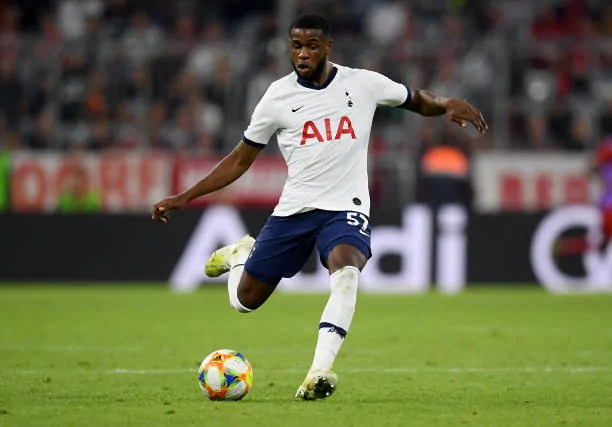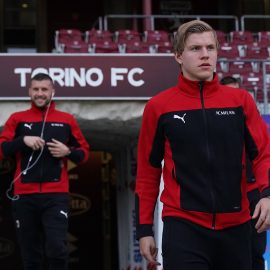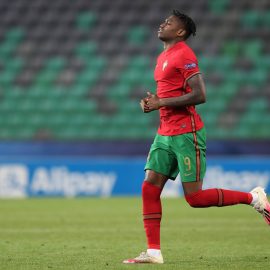The bitter disappointment for the Italian National Team poor figure at the FIFA WC 2010 is just the tip of the iceberg of a crisis that involves all Italian soccer, including clubs. Inter’s win in Champions League came without a single local player on the pitch, but at the same time saved Italy’s fourth spot in the top European competition also for 2011-2012 edition.
However, only a miracle can save Italy from the German overtaking and this is another alarm for the entire world of calcio. Which are main problems, and which solutions can be found?
Italian National Team & Foreign Players in Italian Clubs
First of all, let’s talk about the National Team. The team was knocked out at the first round also because of the wrong choices made by its coach Marcello Lippi. The squad was made up by old and tired players (Gianluca Zambrotta, Fabio Cannavaro), injured players like Gianluigi Buffon, while many others were not fit to wear the blue jersey.
Of course, during these years there’s also a lack of talents (with some exceptions like Mario Balotelli) especially in key positions like play-makers, goalkeepers (who, after Buffon?) and central strikers. For this reason FIGC (the Italian Football Association) decided to limit the new extra-EU signings just to one, causing a discussion with the newborn Serie A League.
Last July 16, League Chairman Maurizio Beretta did not show up at the Federal Council as a protest against that measure. In Italian soccer history, any flop of the “Azzurri” in a World Cup has had, as a consequence, a restriction on foreign players signing for Italian clubs, but rarely it gave results; often it has been useless and just gave less chances to teams in the European cups.
In my opinion, great players would find space in top clubs and in the national team despite the presence of many foreign players and the ones that agree with any kind of limitation (the AIC, the Italian players association) have just the purpose to keep jobs and high salaries for their associated.
Baggio, Rivera, Sacchi Relaunch Calcio
Many people asked FIGC Chairman, Giancarlo Abete, to resign after the disappointment in South Africa. He didn’t, and at the same time he decided to sign three sacred cows of the Italian soccer in key positions, in order to relaunch calcio and get some results in terms of youth players’ growth.
Roberto Baggio, an icon of calcio during the 1990’s, became President of the Technical Sector. «It’s not just a question of image, Baggio’s role will be operational» Renzo Ulivieri, AIAC (the Italian coaches association) president said.
The appointment of “Il Divin Codino” (the Divine Ponytail) has been warmly welcomed by the public opinion and this is a very good news: in fact, in the past both AIAC and all soccer experts had a very bad opinion of unexperienced coaches in key positions in clubs, Baggio has no experience (he has just obtained the Basic Coaching Certification) and his role is more or less the “coach of all the national teams coaches”, so much more delicate.
Baggio has also stated in the past he would have never accepted a job as a coach, so there can be doubts that his signing is a question of image. On the other hand, Baggio is a reliable man and he would never accept a job if he thought he could not do it with great dedication. He is charismatic, so he can make it.
Gianni Rivera, the 67 year old former Vice-World Champion in 1970 and Golden Ball Winner in 1969, has been named “Head of the FIGC School Sector”, an area that has been highly underrated in the past as the Football association thought there was no need to promote the most popular Italian sport in schools.
His task will be very tough, the Italian Government recently decided to cut costs in public school and there are no sports facilities, so it will be difficult that in the next future funds will be allocated for their building.
Currently the only way for kids to start playing soccer is to attend a “Scuola calcio” (Club Academy) with expenses that families, in a period of economic crisis, could cut. Maybe it will be useful to go again to schools and promote soccer, the competition with other sports is really hard.
Last but not least, Arrigo Sacchi has been appointed as the new youth teams coordinator. The former AC Milan coach released an important statement right after being named:
“We need to leave immediately the typical Italian obsession for victory at all costs. Elsewhere soccer is seen in a different way and that’s why they are now better than us. Italy is a country for old men.”
It is not just a question of atmosphere, as Sacchi said, we hope there will be also facts and not only words.
Italian Youth’s Transition to the Senior Team
Let’s explain what happens: Italy in the past won a lot of Euro U21 titles also because other big National teams had already their best youngsters in the first team squad.
In Italy the practice is that a player, even a star like Mario Balotelli, has to play at least two years in the U21 team before joining the “adults”. The only exceptions are for those players that reach success after they are no more eligible for youth teams.
Well, after Sacchi’s words we would like that the future of calcio and the launch of youth players will be more important than the results in the Euro U21. New Italy’s coach, Cesare Prandelli, has just capped Mario Balotelli for the first time on the occasion of the friendly match against Ivory Coast while – for example – German Toni Kroos, same age as Balotelli, has already 8 caps.
Remaining in Germany, Lukas Podolski at the age of 25 – when an Italian player normally makes his first appearance with the Azzurri – has already 79 caps with the Nationalelf!
So, first of all it takes more bravery to launch youngsters, both in clubs and in national team. «He’s not ready yet, his moment will arrive» are words we don’t want to listen anymore, especially referred to players like Balotelli who is 20 and played 86 times in a team like Inter Milan, winning three Scudetto and a Champions League.
The measure against extra-EU players is ineffective as many players from South America and Africa have an EU passport, sometimes an Italian one, and discrimination within EU workers is forbidden by law.
Another problem is that Italian talent scouts prefer to travel Overseas and find a young player with an EU passport, who normally makes his debut in a first team at the age of 16 and costs the half of an Italian guy of same age.
On the other hand, for small teams is more difficult now to survive only with the academy, as the young player when he is 16 can sign for whatever club he wants his first professional contract, and his last club has just the so called “Training & Development Compensation” which does not motivate small teams like in the past when the young players were bound to them.
Lega Nord And Their Policies
Last issue before talking about club football is related to the Italian domestic policy and demography. Italy is the only country where a xenophobic party (the Lega Nord party) is in power. Benchmark is again Germany, where the National Team placed third at the last WC was made by players with an exotic name like Özil, Khedira, Boateng, Podolski, and others.
Some of them have a German parent, but the majority of them are second generation immigrants. Would it be possible to do the same in Italy? Consider that the birth-rate in the country has inverted the negative trend thanks to the immigration, in certain schools there are classes where the majority is made by foreigners.
However, Italian law for citizenship takes into account the “ius sanguinis”, meaning all these second generation immigrants have no Italian passport until they are 18 and the procedure is long and complicated. We are talking about the ones who are born in Italy, for the others it’s even more difficult.
Last year the Italian U15 cricket national team won the European Second Division Championship with just an Italian boy: all the rest were sons of Indian, Pakistani, Bangladeshi and Sri Lankan immigrants (all countries where cricket is the most popular sport). They could play for Italy according to the cricket federation rules, but just two of them have an Italian passport, so if it was soccer they wouldn’t been entitled to play for Italy.
Curiously, as they won the title they immediately dedicated the trophy to Umberto Bossi, the Lega Nord secretary.
The Barwuah Saga
Also, Mario Balotelli is always victim of racism in Italian stadia, where people sings to him things like “There’s no black Italian”. He became officially Italian at the age of 18 but, under a soccer perspective, he is 100% Italian, more than Mauro Camoranesi (who has an Italian grandfather) or even Amauri, just capped at the age of 30, after becoming Italian for marriage with a Brazilian naturalized Italian woman.
We think that, if Balotelli was not adopted by an Italian family and grew up with his Ghanaian natural parents he could have chosen Ghana National Team, with a great damage for calcio. In fact, he was called by the Ghanaian Federation but he always refused as he feels Italian.
We hope the public opinion will be more open minded in the future and will accept a soccer team like the German one, if it should happen.
This is a two-part article. Part II of Football in Italy: Crisis, Problems & Solutions will be online on 13th August 2010.
Add Sportslens to your Google News Feed!






